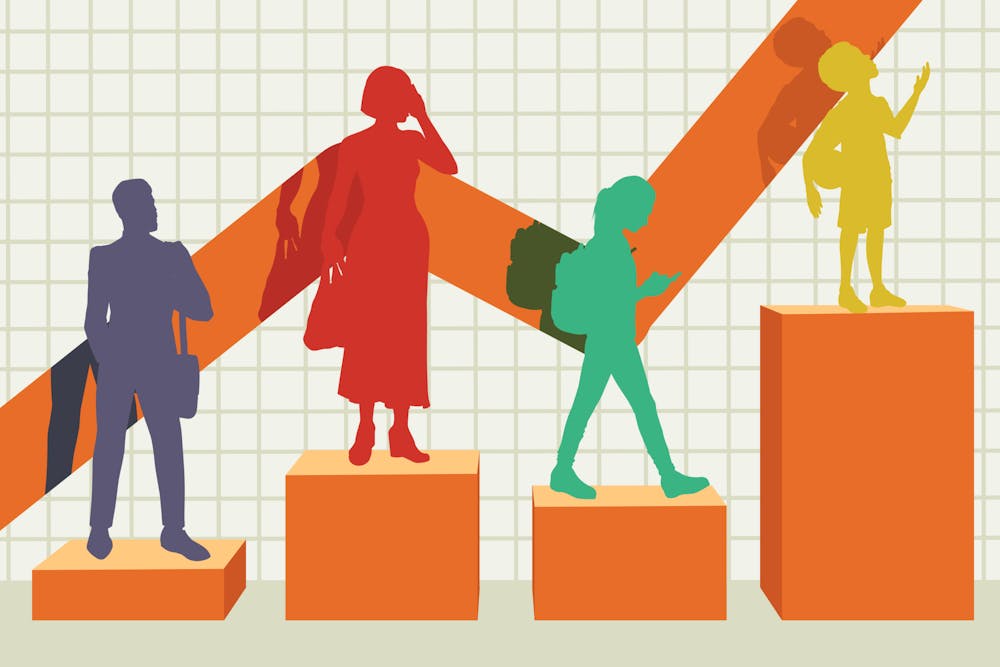In middle school English classes, I was forced to read a variety of anecdotal, panicky pieces about us young people and our digital technologies.
The authors would lament that the young’uns these days would never learn proper grammar because they only ever write "LOL." The conclusion was always that vaguely-defined “technology” would ruin our generation, and probably cause the downfall of civilization.
A new portrait of our generation has emerged in recent years. It is still gloomy, but different in a key respect: It is specific, rigorous and evidence-based.
Jean Twenge’s book "Generations," published in April, is a key step forward in this understanding. Twenge, a psychologist at San Diego State University, analyzes 24 datasets covering 39 million people to understand the difference between Americans of all ages.
Many of Twenge’s stats on Gen Z (born 1995 to 2012) reveal in greater detail what you probably already knew: On average, we are more depressed, more pessimistic, more gender fluid and less religious than any other generation.
One graph in Twenge's book reveals around 41 percent of surveyed 8th, 10th and 12th graders said that they often felt lonely in 2021. While potentially exacerbated by the pandemic, the upward trend of depressive symptoms started earlier.
In the Gen Z chapter, most of the graphs on mental health issues show no clear trend before 2012, but after? Spikes in the number of teenagers who were lonely, dissatisfied with themselves and meeting the standards for clinical depression. At the same time, there were declines in time spent in person with friends and willingness to take risks.
What happened in 2012? While I tend to think our generation was doomed by Taylor Swift’s release of "Red" that year, Twenge points to a different culprit: It was in 2012 that a majority of teens first owned smartphones and the percentage that used social media daily neared three-quarters.
“The way teens spent their time outside of school fundamentally changed after 2012: They spent more time on digital media, less time with each other in person, and less time sleeping,” Twenge writes.




